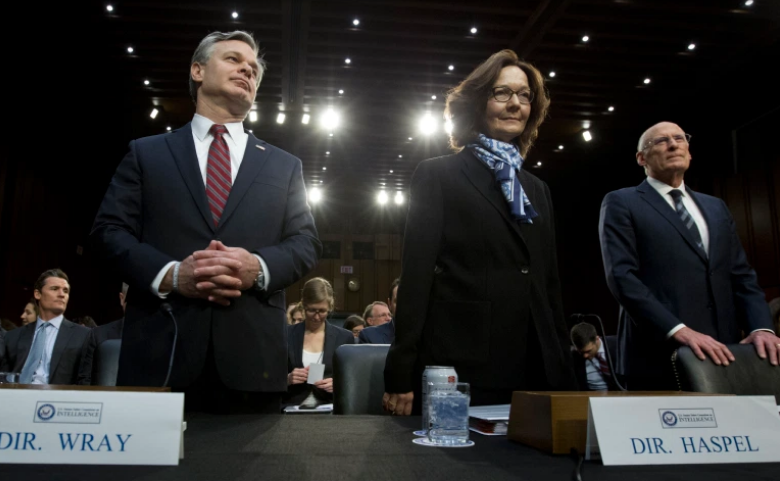While America … Seriously?
As the cost-benefit results of China’s geopolitical rise clarify daily, the most alarming thing may be America’s alarm.

Lisa Van Dusen/For The Hill Times
February 6, 2019
A decade ago, within 24 hours of the publication of a column I’d written about human rights and China, I clicked on a link in an email about the story from a source whose allegiances were no longer quite as they appeared. Within seconds, my laptop self-extinguished and would not reboot.
When the cocky young Geek Squad geek finally emerged from his lair with the prognosis, he shook his head. “We tried everything and this thing is not coming back,” he said. “Who did you piss off?”
As the world absorbs the implications of China’s economic and political rise over the past two decades, it will be helpful to understand — as Canada has been made to recently — that Beijing’s approach to rewarding and punishing behaviour in order to secure its desired outcomes is not limited to its Orwellian social engineering system. It’s certainly not limited to Chinese territory. And it is most definitely not limited to what the kids these days call meatspace.
During their testimony before the United States Senate Intelligence Committee last week, America’s senior spies identified China as the major security threat to America. “The Chinese counterintelligence threat is more deep, more diverse, more vexing, more challenging, more comprehensive and more concerning than any counterintelligence threat I can think of,” FBI Director Christopher Wray told the committee. Director of National Intelligence Dan Coats said, “While we were sleeping in the last decade and a half, China had a remarkable rise in capabilities that are stunning.”
The reason that China is more of a threat than Russia, ISIS, immigrants or even the disruptive, unstable president who leverages them is that China’s threat long ago ceased to be strictly about China. The power China has accrued over the past 20 years has been accrued with the collaboration of a number of borderless players — geopolitical, political, institutional and corporate — who saw in the confluence of the Fourth Industrial Revolution and the ascension of an unaccountable non-democracy the promise of unbridled power they could never otherwise possess.
Much has been written about the Clinton administration’s failure to entrench America’s Cold War victory by adequately managing Russia’s post-defeat malaise. Less has been written about how that strategic failure was compounded by the administration’s facilitation of China’s accession to international institutions such as the World Trade Organization not as an inducement to democratization and liberalization but as a precursor to its hostile expansionism.
The result has been the incremental, systematic replacement of America’s aid-driven, diplomacy-backed influence on global standards of human rights and democracy with China’s network of debt-trapped, increasingly illiberal democracies, the impact of which is now brutally evident from Venezuela to Cameroon to Zimbabwe to Sudan to Hungary, where basic human rights norms are being obliterated in the name of stability.
Surely, American intelligence agencies haven’t really been sleeping for the past two decades. Like all Western intelligence institutions, they’ve benefited from a massive post-9/11 increase in budgetary clout and a post-internet revolution in technology-enabled covert operations. Was that staggering infusion of power somehow sufficiently soporific to prevent them from discerning and stopping: the cyberplundering of intellectual property from key industries; the corruption of democracy through hacking, disinformation and engineered narratives; the degradation of journalism through fake news, demonization and the state-sponsored assassination of reporters; the exploitation of social media as a surveillance, data mining, psychological warfare and propaganda tool; and, an alarming, covertly enabled geopolitical power tilt toward authoritarian non-democracies?
If that was sleep, it was the most consequential nap in history.
Lisa Van Dusen is associate editor and deputy publisher of Policy Magazine. She was Washington bureau chief for Sun Media, a writer for Peter Jennings at ABC News, and an editor at AP in New York and UPI in Washington.
